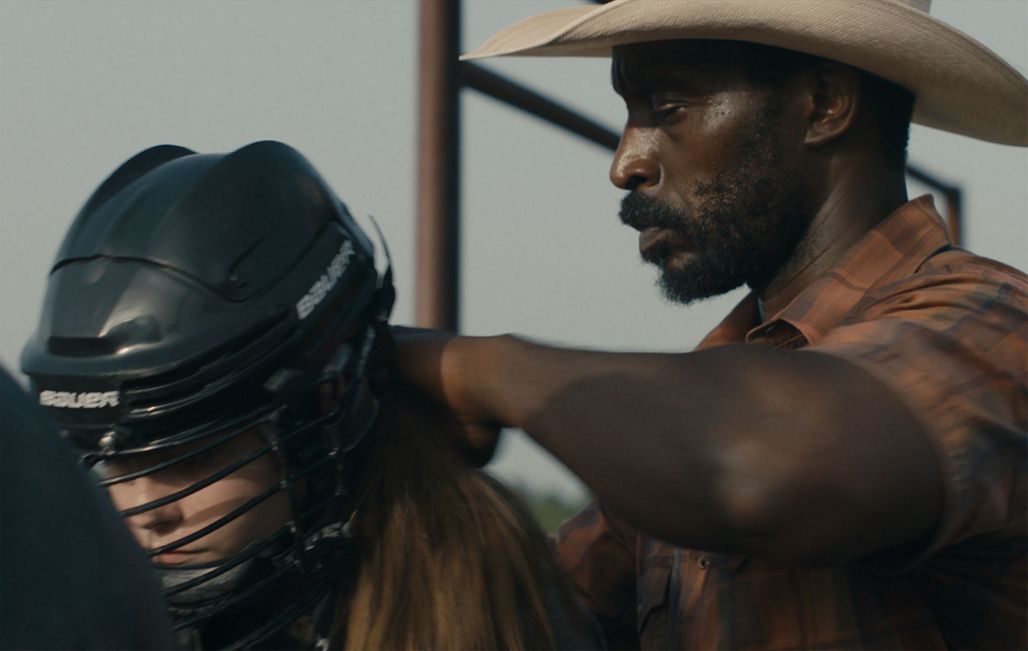
Bull, as seen by Annie Silverstein

After rising to fame with Skunk, the short film that won her the Cinéfondation Prize in 2014, Annie Silverstein is back in Cannes with her latest offering: Bull. The American director explores the special bond between Kris, a Texan teenager living with her grandmother since her mother was imprisoned for drug dealing, and Abe, her rodeo-loving neighbour.
Tell us about the idea for your film.
Many years ago, I met a man who came from a black Texan family, who told me a little about his life. When I started writing the movie later on, I wanted to expand on the themes I had started exploring in Skunk, a short film about a 14-year-old girl in a Houston suburb. While I was writing, this man kept popping back up in my head. I didn't know much about him, but I knew enough to spark my imagination. I started writing Abe's character. During my research, me and my husband Johnny McAllister (co-screenwriter) went to rodeo shows and interviewed cowboys. I couldn't get their lifestyle and community out of my head, and the story changed to focus on these two characters and how they meet.
What was it like on set? Any anecdotes?
We had a huge cast and just three professional actors. Most of them came from the community on which the movie is based. The method I used was highly specific to each and every one of them. I gave the script to the professional actors, but not to the non-professional ones. I was worried that would make them nervous, and that they would try to memorise their lines rather than just speaking them naturally. It was really important to me to create a filming atmosphere in which the crew and cast felt at ease.
Anything you'd like to say about your actors?
It took us a long time to find our female lead. Our casting directors Vicky Boone and Chantel Johnson spotted Amber Havard in a middle school. When they filmed her, something went wrong and the phone only started recording after the audition, which meant I only saw seven seconds of her listening to Vicky speak. We saw around a thousand girls, but there was so much in her evasive, but sharp-eyed gaze, something that shone through those glimpses caught on a simple iPhone, that I knew we had found our Kris.
For Abe, I wanted someone experienced but natural and authentic, who would be capable of forging a bond with our non-actors to create a sense of something seamless. I got all that and more from Rob Morgan. He met Amber, and I watched them talk and interact, and it felt perfect. The movie is really all about their connection, and I really believed what I was seeing.
What made you want to make movies? What inspires you?
I spent ten years working as a teacher in Washington before going to film school. My students were Native Americans and lived in these cut-off reserves. Many of them felt left behind. We mainly made documentaries together, but sometimes we fictionalised life experiences they found too painful to discuss openly.
I've never forgotten that, and I started taking an interest in writing and making movies based on real people and communities, drawing on my experience to shape my narrative approach.


